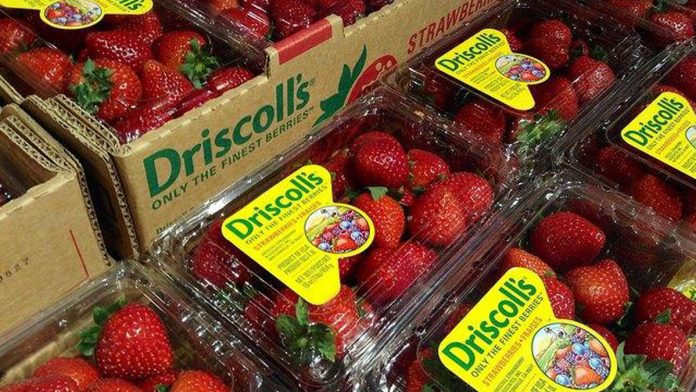TAIPEI – Shipments of Sunkist oranges and Driscoll’s strawberries imported from the United States were recently seized at Taiwan’s border after they were found to contain excessive levels of herbicide or insecticide residues.
The American fruits were among 23 items included in Taiwan’s Food and Drug Administration’s (FDA) latest weekly report, issued Tuesday, on imported shipments confiscated for food safety violations, Central News Agency (CNA) reported.
The 18,889 kilogram shipment of Sunkist oranges was seized after samples tested on April 1 were found to contain residues of the banned herbicide simazine at a concentration of 0.03 parts per million, the FDA said.
Meanwhile, the 1,523 kg shipment of Driscoll’s brand strawberries was rejected after being found to contain residues of the insecticide novaluron at a level of 0.7 ppm, slightly over the legal limit of 0.5 ppm, the agency said.
According to CNA’s report, the most severe violation reported this week involved a 20,400 kg shipment of fresh young coconut from Thailand, which was found to contain 0.32 ppm of the fungicide azoxystrobin, vastly exceeding the legal limit of 0.01 ppm.
From Australia, meanwhile, the FDA said it had confiscated 23,000 kg of potatoes for excessive fungicide levels. Though the variety of the potatoes was not reported, they appeared to be of a small,yellow-fleshed variety similar to Yukon gold.
In terms of seafood, 4,081 kg of frozen blue marlin from Sri Lanka was seized after being found to contain the heavy metal cadmium at a level of 0.24 milligrams per kg, nearly five times above the legal limit of 0.05 mg/kg, the agency said.
According to Taiwan’s Regulations of Inspection of Imported Foods and Related Products, border authorities are required to conduct random inspections on between 2-10 percent of food shipments arriving in the country.
Products which fail inspection are placed under “reinforced” guidelines, which require the inspection rate to be increased to 20-50 percent.
According to the FDA, the seized products were either returned to their country of origin or destroyed.













